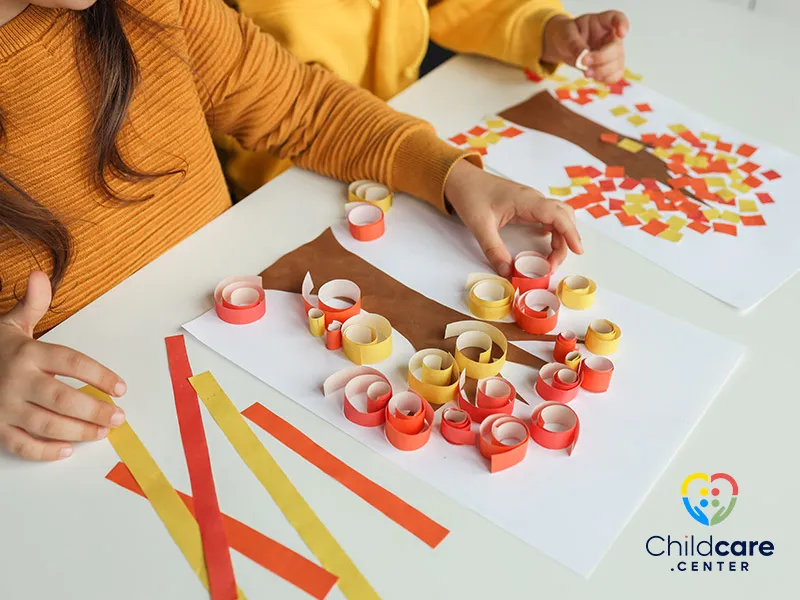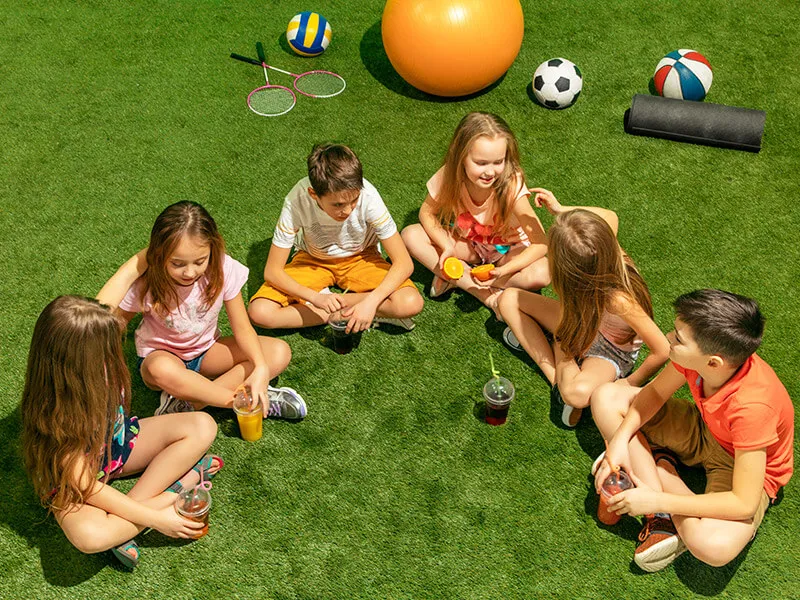10 Must-Try After-School Activities : A Guide for Busy Parents

As a busy parent, finding the right after-school activities or a reliable childcare center can feel daunting. With so many options available, from sports to arts to academic programs, it's easy to feel overwhelmed. But these after-school activities are more than just a way to keep your kids occupied; they offer invaluable opportunities for skill development, social interaction, and personal growth.
The Importance of After-School Activities
The significance of after-school activities in a child's life is often underestimated. These aren't just ways to pass the time after school; they're crucial elements of a child's holistic development. After-school activities provide an additional platform for children to explore their interests, develop new skills, and build meaningful relationships. They offer a balanced mix of academic, physical, and social experiences, helping children become well-rounded individuals.
Moreover, after-school activities can be a lifesaver for busy parents. They not only keep kids engaged but also offer peace of mind to parents who may be at work or attending to other responsibilities. Knowing your child is in a safe and constructive environment can alleviate some of the day-to-day stress that comes with parenting. Whether it's a sports league, an art class, or a science club, these activities provide a structured and enriching setting where your child can thrive.

The Criteria for Choosing the Right Activity
Selecting the ideal after-school activities for your child involves more than just picking the first option that comes to mind. It's about aligning these extracurricular engagements with your child's age, interests, and overall development goals. Age-appropriate activities are crucial, especially for younger children who may benefit more from play-based or social experiences. As your child grows, you can introduce more structured activities that align with their academic or artistic pursuits.

Another key factor to consider is your child's interests and talents. After all, the most beneficial after-school programs are those that keep your child engaged and excited. Whether it's a passion for painting, a knack for numbers, or a love for sports, choosing activities that resonate with your child's inclinations ensures they'll be more committed and reap the maximum benefits. This way, you're not just filling their time—you're enriching their lives.
Top 10 After-School Activities for Your Child and Their Multifaceted Benefits
Selecting enriching after-school activities is a pivotal step in fostering your child's holistic development. These activities not only keep your child engaged but also offer a plethora of benefits that contribute to cognitive development, social skills, and emotional well-being. Here's a comprehensive list of 10 standout after-school activities, each with its unique set of advantages:
1. Sports and Physical Activities
Engaging in sports like soccer or basketball offers more than just physical exercise. These activities sharpen hand-eye coordination and strategic thinking, contributing to cognitive development. They also provide a platform for children to learn teamwork, communication, and empathy, enhancing their social skills. Moreover, the endorphins released during physical activities can significantly improve your child's mood and emotional well-being.

The Canadian Fitness and Lifestyle Research Institute provides data on the benefits of physical activities for children.
2. Arts and Crafts
Participating in arts and crafts activities like painting or pottery stimulates the brain, fostering problem-solving and innovative thinking. Group projects in this category can also improve social interaction and collaboration skills. Additionally, the act of creating something beautiful can be emotionally satisfying and therapeutic.
3. Music and Dance
Learning an instrument or taking dance lessons offers a wide range of benefits. These activities can improve memory and attention span, aiding cognitive development. Group performances or ensemble participation enhances teamwork and communication skills. Plus, music and dance serve as emotional outlets that can uplift your child's mood.
4. STEM Clubs
STEM (Science, Technology, Engineering, and Math) clubs are not just academic enrichment platforms; they're incubators for future innovators. These clubs foster analytical thinking and problem-solving skills, crucial for cognitive development. Collaborative projects within these clubs also teach kids how to work effectively in a team and communicate their ideas, thereby improving their social skills. Successfully completing a challenging project can boost self-esteem and emotional well-being.

5. Language Learning
Mastering a new language offers cognitive benefits like improved memory and multitasking skills. Being bilingual or multilingual can also enhance your child's social skills by making it easier to communicate with a broader range of people. Plus, the confidence gained from learning a new language can significantly boost emotional well-being.

6. Cooking Classes
Cooking isn't just about preparing food; it's a multifaceted learning experience. These classes can improve your child's understanding of nutrition and meal planning, contributing to cognitive development. They also offer a social setting where kids can collaborate and share responsibilities, enhancing their social skills. The sense of accomplishment from creating a dish can be a significant boost to emotional well-being.
7. Community Service
Volunteering at a local organization or participating in community clean-ups offers a unique set of benefits. It instills a sense of social responsibility and empathy, contributing to your child's social development. The act of giving back can also be emotionally fulfilling, providing a sense of purpose and well-being.
8. Drama and Theater
Participating in drama and theater activities can be transformative for your child. These activities improve self-confidence and public speaking skills, contributing to both cognitive and social development. The emotional expression required in acting can also serve as a therapeutic outlet, enhancing emotional well-being.
9. Outdoor Exploration
Activities like hiking, bird-watching, or nature walks offer a different kind of enrichment. They can instill a love for the environment and teach children about local flora and fauna, contributing to their cognitive development. These activities also offer opportunities for social interaction and teamwork. The peace and tranquility of nature can have a calming effect, contributing to emotional well-being. If your child loves the outdoors, don't miss 7 Must-Try Nature Activities for Kids!
10. Chess and Strategy Games
Don't underestimate the power of a good game of chess or other strategy games. These activities require strategic thinking, foresight, and problem-solving skills, making them excellent for cognitive development. They also teach patience and planning, which are valuable social skills. The intellectual challenge and the joy of victory can be emotionally uplifting.
By offering a diverse range of activities, this list aims to cater to various interests and developmental needs. Each activity provides more than just a way to pass the time; they offer avenues for growth, learning, and personal development.
How to Balance After-School Activities with Homework
Juggling after-school activities and homework can be a challenging task for both parents and children. While extracurricular activities offer numerous benefits for personal and social development, academics remain a priority. Striking the right balance is crucial to ensure your child excels in both areas without feeling overwhelmed.

Time Management is Key
One of the most effective ways to balance after-school activities with homework is through proper time management. Creating a daily or weekly schedule can help allocate specific time slots for each activity. Make sure to include some downtime as well, so your child doesn't feel overburdened. Apps and planners designed for time management can be excellent tools to keep track of various commitments.
Prioritize and Plan
Not all after-school activities and homework assignments are created equal. Some may require more time and focus than others. Teach your child the art of prioritization. Knowing what needs immediate attention and what can wait is a valuable skill that will serve them well in the long run. A well-thought-out plan can help distribute the workload over the week, making it manageable and less stressful.
Communication is Crucial
Open lines of communication between you, your child, and their educators can make a world of difference. Regular check-ins can help you gauge how well your child is managing their time and if any adjustments need to be made. Teachers can provide insights into upcoming assignments and tests, allowing you to plan after-school activities accordingly.
Flexibility and Adaptability
While schedules and plans are essential, flexibility is equally important. There will be days when unexpected assignments come up or an after-school activity runs late. Adaptability and a willingness to adjust plans can help manage such situations without causing stress or anxiety.
By implementing these strategies, you can help your child enjoy the benefits of after-school activities while keeping up with their academic responsibilities. It's all about finding the right balance that works for your family. For more tips on fostering independence, check out our post on Little Things You Can Do Every Day to Make Your Child More Independent.
Incorporating Family Time
Incorporating family time into a busy schedule filled with after-school activities and homework can be challenging, but it's crucial for a child's emotional and social well-being.
Making family time a non-negotiable part of your routine ensures it receives the attention it deserves. Whether it's a dedicated weekly game night, a monthly outing, or simply daily dinners together, these moments offer invaluable opportunities for bonding and emotional connection. By being fully present during these times and occasionally merging family activities with homework or community service, you create a balanced, enriching environment for your child.

Budget-Friendly Options for After-School Activities
Finding budget-friendly options for after-school activities doesn't mean you have to compromise on quality. Community centers often offer a wide range of affordable programs, from sports to arts and academics, and are usually conveniently located. Online resources also provide a plethora of courses in various fields, often at little to no cost. By combining free and paid options, and taking advantage of school programs, you can give your child a well-rounded extracurricular experience without straining the family budget. For financial assistance, you can visit Canada.ca's Benefits Finder.
Conclusion
Balancing after-school activities, academics, and family time can be a juggling act, but it's crucial for your child's overall development. By carefully selecting activities, managing time, and keeping an open line of communication, you can create a fulfilling and balanced life for your child. Budget-friendly options make it accessible for all, ensuring that enriching experiences aren't limited by finances. In the end, it's about fostering a well-rounded individual who benefits from academic, social, and emotional growth.









